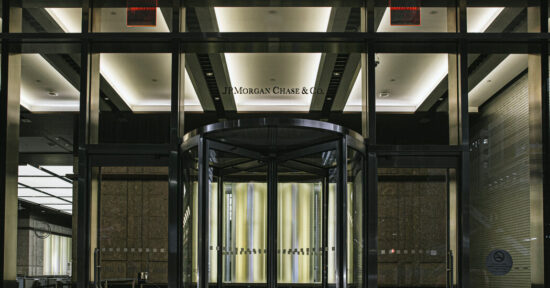Why It Matters
Given its size, JPMorgan in particular is a proxy for the banking industry. Jamie Dimon, the bank’s chief executive, has deep political connections, and his prognostications on the economy are scrutinized in some circles as closely as a central banker’s musings.
On Friday, Mr. Dimon told analysts that he expected the U.S. economy to experience “a soft landing, mild recession or a hard recession,” though he didn’t put a time frame on the prediction. “Obviously, we shall hope for the best,” he said.
In its latest report, the bank listed a litany of risks, including that consumers are burning through their cash buffers and that inflation remains high. Last quarter, JPMorgan lost $900 million on investments in U.S. Treasury bonds and mortgage-backed securities, which have dropped in value as rates have risen — but that was barely a dent in its results.
Wells Fargo, one of the nation’s largest mortgage lenders, is watched by analysts for signs of economic stress. The U.S. economy “continues to perform better than many had expected,” said Charles W. Scharf, the bank’s chief executive.
The bank said Friday that soured loans in its commercial business had increased, but that its consumer business had held fairly steady, with a slight rise in credit-card defaults offset by a drop in losses on auto loans. Commercial real estate, especially loans on office space, is a pain point, and the bank set aside nearly $1 billion more for losses.
Unlike the other banks, Citigroup reported a fall in second-quarter profit, although the decline was not as severe as analysts had predicted. “The long-awaited rebound in investment banking has yet to materialize, making for a disappointing quarter,” Citi’s chief executive, Jane Fraser, said in a statement.
Background
The three major banks that reported earnings Friday have been all over the news this year, thanks to their prominent role attempting to be a stabilizing force during the spring banking crisis that felled three smaller lenders. JPMorgan bought one of those failed banks, First Republic. In an indication of how troubled that institution had become, JPMorgan said Friday that it was setting aside $1.2 billion to deal with losses in First Republic’s lending portfolio.
Analysts still expect the acquisition to prove worthy in the end, thanks to First Republic’s base of wealthy clients and coastal branches, which Friday’s results show are already buoying JPMorgan’s asset and wealth management arms.
The U.S. government debt-limit standoff in April and May was also reflected in the banks’ results, with Citi citing anxiety during the negotiations as pushing investment-banking clients to the “sidelines” during the second quarter.
What’s Next
In the next week or so, a slew of other banks will report quarterly earnings. Among the most closely watched will be Wednesday’s results from Goldman Sachs, which has hinted publicly of a disappointing stretch, and regional banks like Western Alliance and Comerica, which will be looking to prove they have bounced back from their recent troubles.








